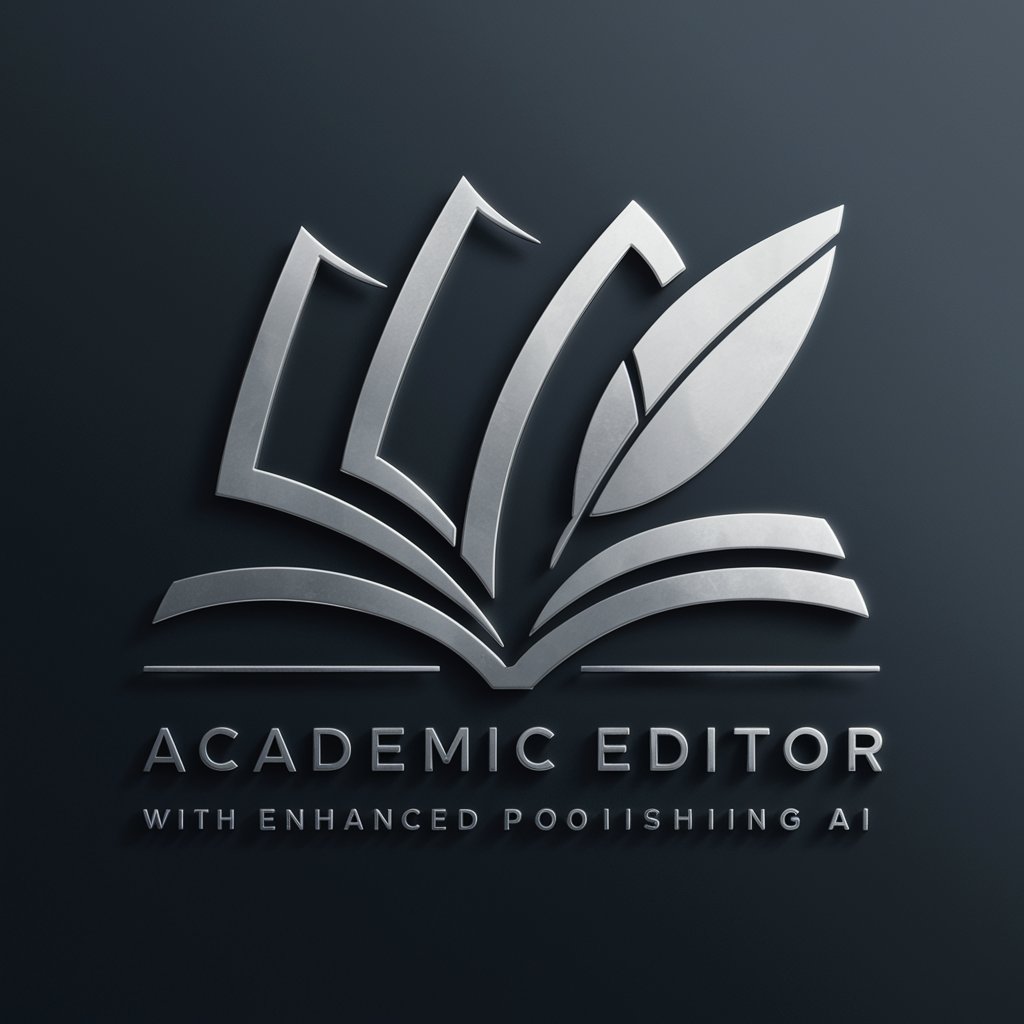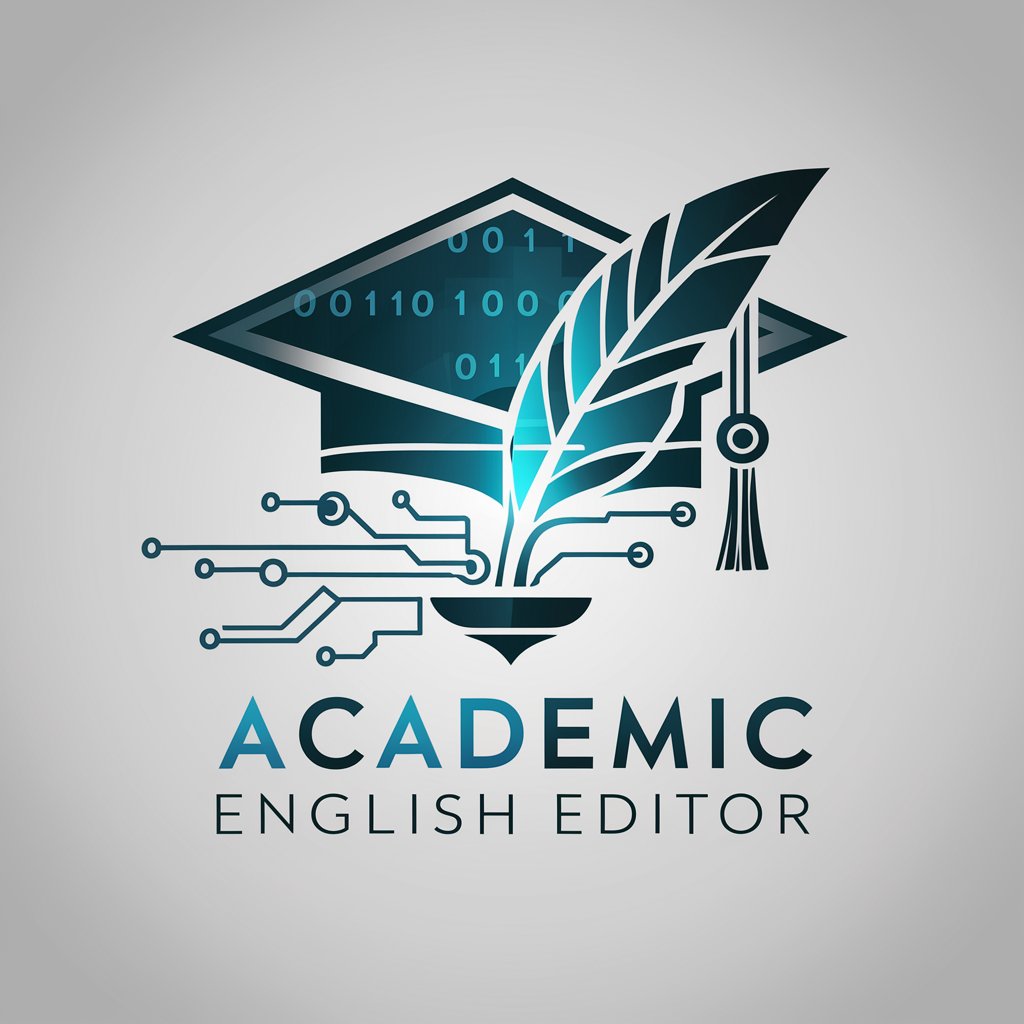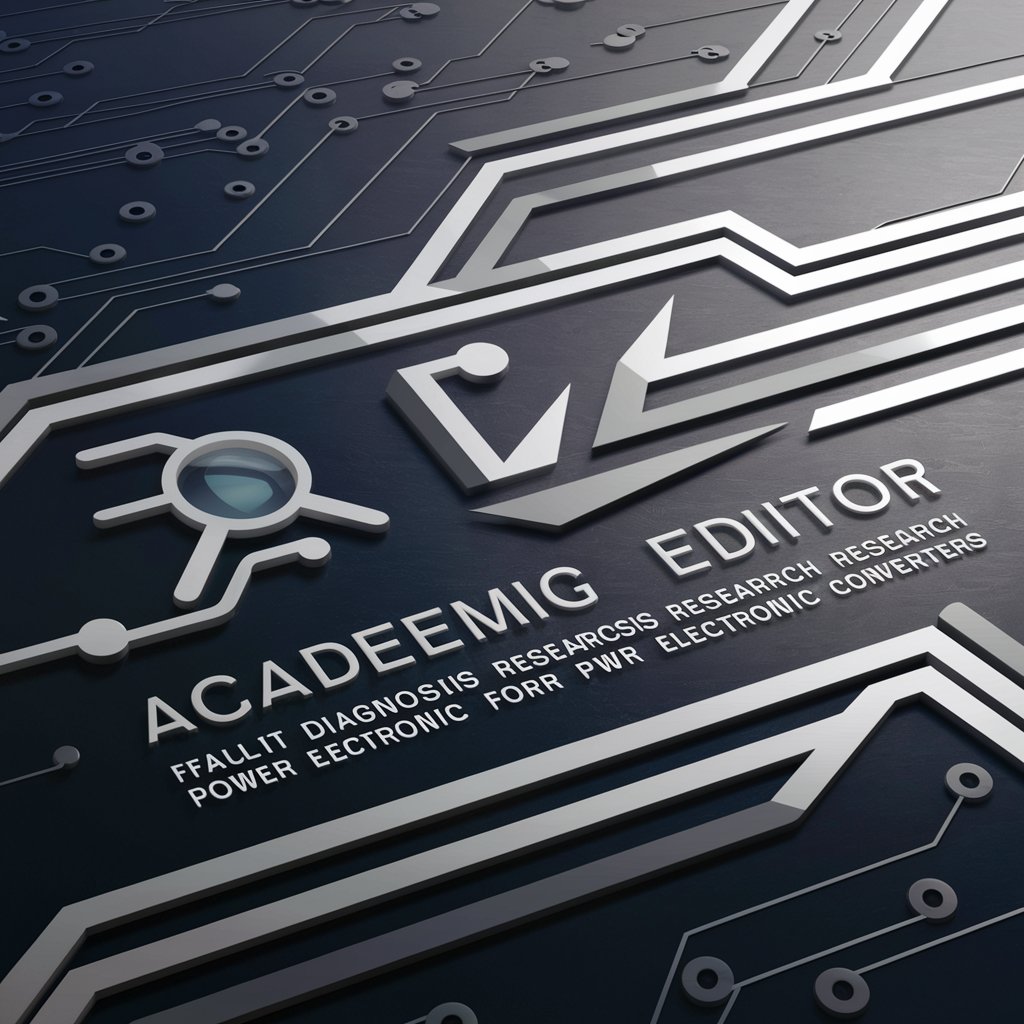
Academic Editor - Precise Academic Text Editing
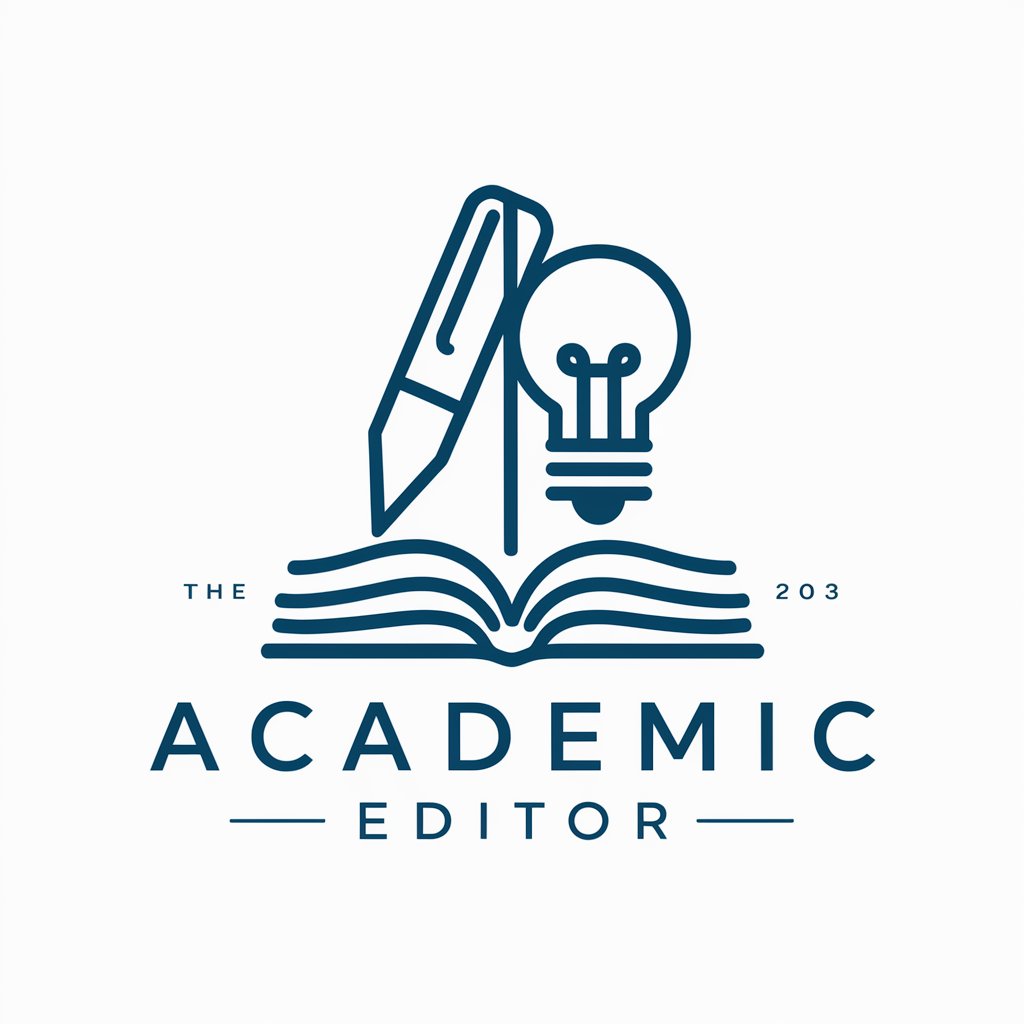
Welcome! How can I assist you today?
Refining Academic Writing with AI Precision
To improve the academic tone,
For enhanced clarity and precision,
In adherence to APA style,
To ensure scientific accuracy,
Get Embed Code
Overview of Academic Editor
Academic Editor is a specialized AI tool designed to assist in the refinement and improvement of academic texts, particularly in the field of psychology. Its primary role is to meticulously rephrase user-provided paragraphs, enhancing them to meet the rigorous standards of academic psychological articles. This involves improving clarity, precision, and adherence to an academic tone, with a specific focus on aligning the text with the American Psychological Association (APA) style guidelines. For instance, if a user submits a paragraph discussing cognitive biases in decision-making, Academic Editor would not only correct grammatical errors but also refine the language to ensure it's scientifically accurate and adheres to APA style. Powered by ChatGPT-4o。

Key Functions of Academic Editor
Critical Review
Example
For a paragraph discussing the impact of social media on adolescent mental health, Academic Editor would identify issues like casual language, lack of precision, or non-APA style citations.
Scenario
In an academic setting, a student submits a draft of their thesis chapter for review. Academic Editor analyzes the text, offering critical feedback on language, style, and scientific rigor.
Suggested Improvements
Example
In a submitted paragraph about neuroplasticity, Academic Editor would suggest replacing colloquial terms with technical ones, restructuring sentences for clarity, and ensuring that all claims are supported by empirical evidence.
Scenario
A researcher preparing a journal article receives suggestions on improving their manuscript's flow, clarity, and adherence to scientific norms.
Rephrased Edits
Example
For a paragraph on behavioral psychology, Academic Editor would rephrase the text to match the length and detail of the original while enhancing academic tone and precision.
Scenario
An academic author receives a rephrased version of their book chapter, ensuring it maintains the original meaning while enhancing readability and academic appropriateness.
Target User Groups for Academic Editor
Academic Students
Students writing theses, dissertations, or research papers would benefit from Academic Editor's ability to refine their writing to meet academic standards. This service is particularly valuable for those less familiar with APA style or academic writing conventions.
Research Scholars and Academics
Experienced researchers and academics seeking to publish in peer-reviewed journals can use Academic Editor to ensure their manuscripts are clear, concise, and scientifically accurate, enhancing their chances of acceptance.
Non-native English Speakers
Individuals who are proficient in their academic discipline but may struggle with the nuances of English academic writing would find Academic Editor's services essential in conveying their ideas clearly and effectively.

How to Use Academic Editor
Initial Access
Start by visiting yeschat.ai for a complimentary trial, accessible without the necessity of logging in or subscribing to ChatGPT Plus.
Choose Editing Task
Select the Academic Editor tool from the available options. This is specifically designed for refining academic texts.
Upload or Input Text
Provide the text you wish to edit by uploading a document or pasting the text directly into the tool.
Specify Requirements
Clearly outline any specific editing needs, such as adherence to APA style, or focus areas like clarity or tone.
Review and Apply Changes
Once the edit suggestions are provided, review them and apply the changes to your document as needed.
Try other advanced and practical GPTs
Idea Forge
Empowering Innovation with AI
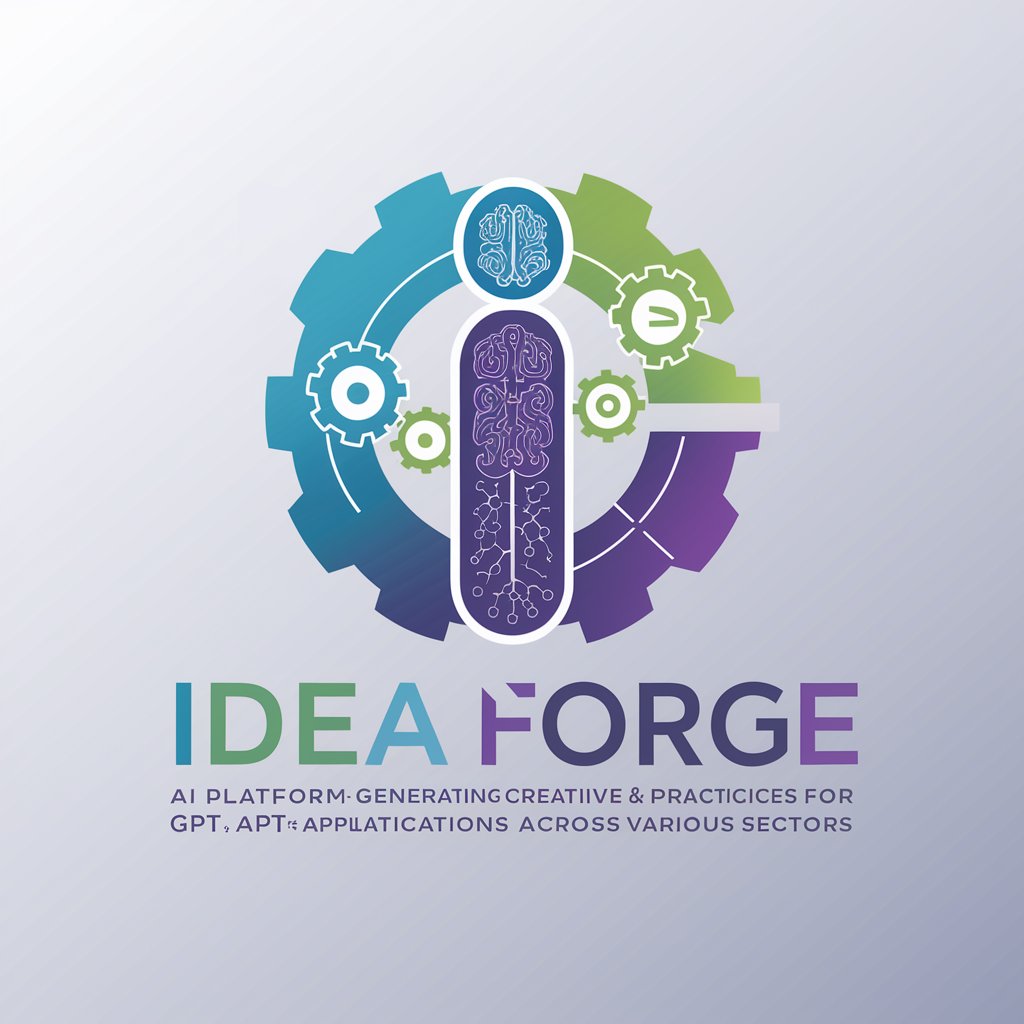
Efficient Manager
Streamline Projects with AI-Powered Management

The Playful Professor
Empowering Learning Through Play

Anki - IKITOMU's Art Reporter
Revolutionizing Art Insights with AI

NewMail AI
Streamline Your Inbox with AI

Beer GPT
Elevate Your Beer Experience with AI

Web Dev Guide
Empowering Your Web Development Journey with AI

GPT Store guide
Navigate GPT with Ease

Python Bot 1.11
Empowering Code with AI

GSEC guide
Master cybersecurity with AI.
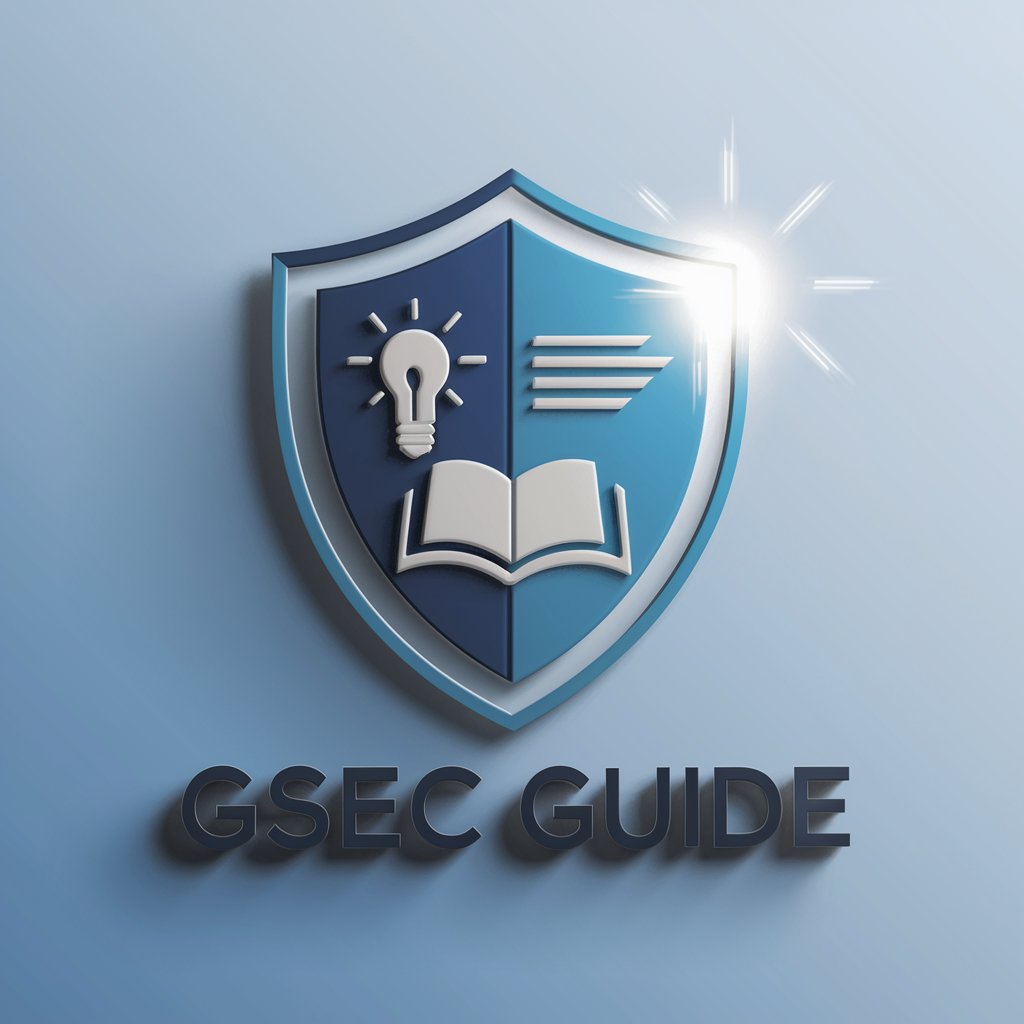
Global Translator
Translate Effortlessly with AI Precision

Investor
Empowering startups with AI-driven investment insights.

Frequently Asked Questions About Academic Editor
What types of documents can Academic Editor handle?
Academic Editor is adept at refining a wide range of academic documents, including research papers, thesis manuscripts, and journal articles, focusing on clarity, academic tone, and adherence to specific style guides.
Is Academic Editor suitable for non-native English speakers?
Absolutely. Academic Editor is an invaluable tool for non-native English speakers, enhancing the clarity and fluency of their academic writing while maintaining the original meaning.
Can Academic Editor help with citation styles?
Yes, Academic Editor is programmed to align with various citation styles, including APA, ensuring that your document adheres to the specific formatting and citation guidelines required.
How does Academic Editor handle technical or specialized content?
Academic Editor is designed to work with technical and specialized content, enhancing clarity and precision without altering technical terms or established psychological constructs.
Is user input necessary for the editing process?
User input is crucial for guiding the editing process. Providing specific requirements or focus areas enables Academic Editor to tailor its suggestions more effectively to the user's needs.

